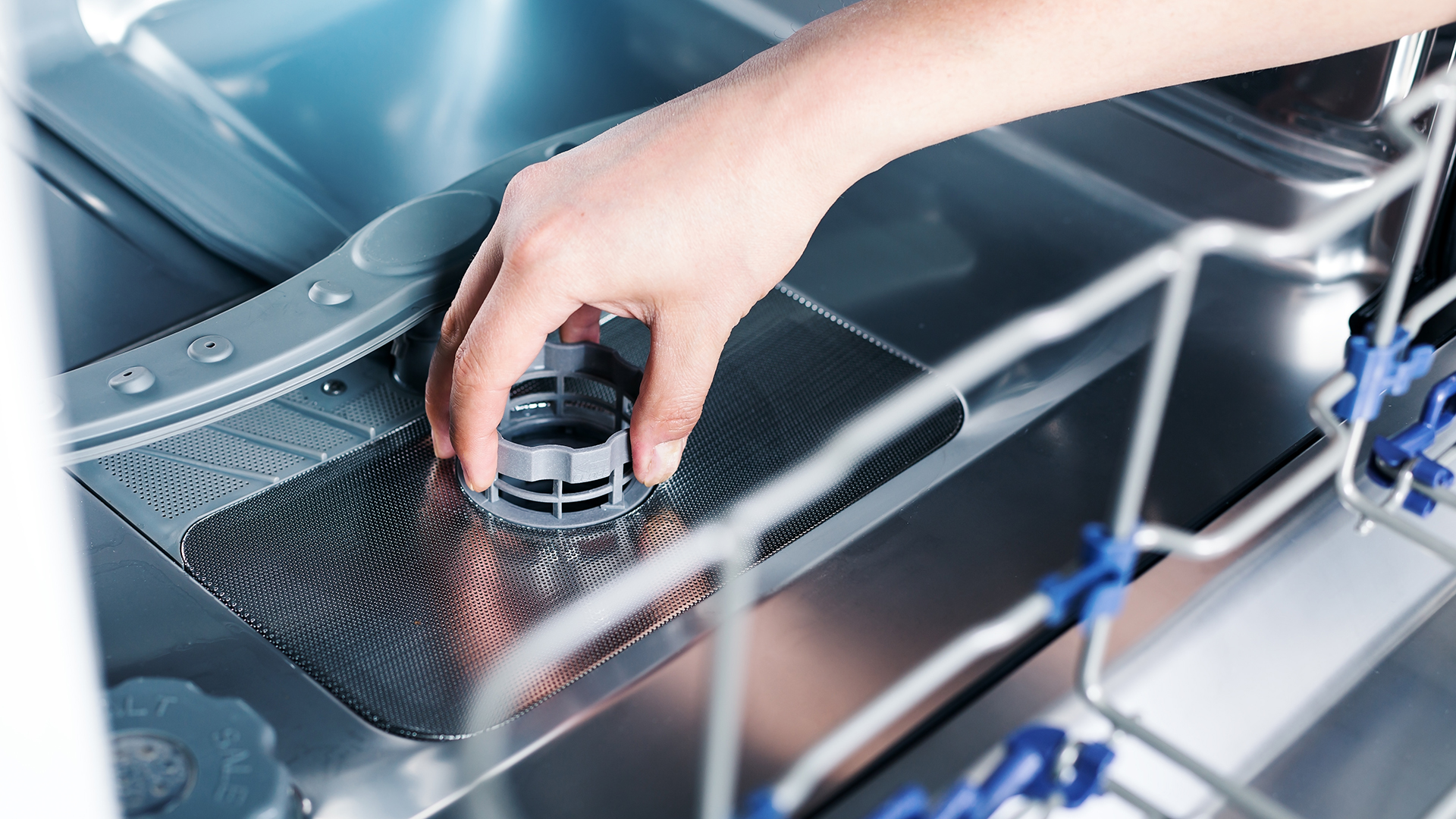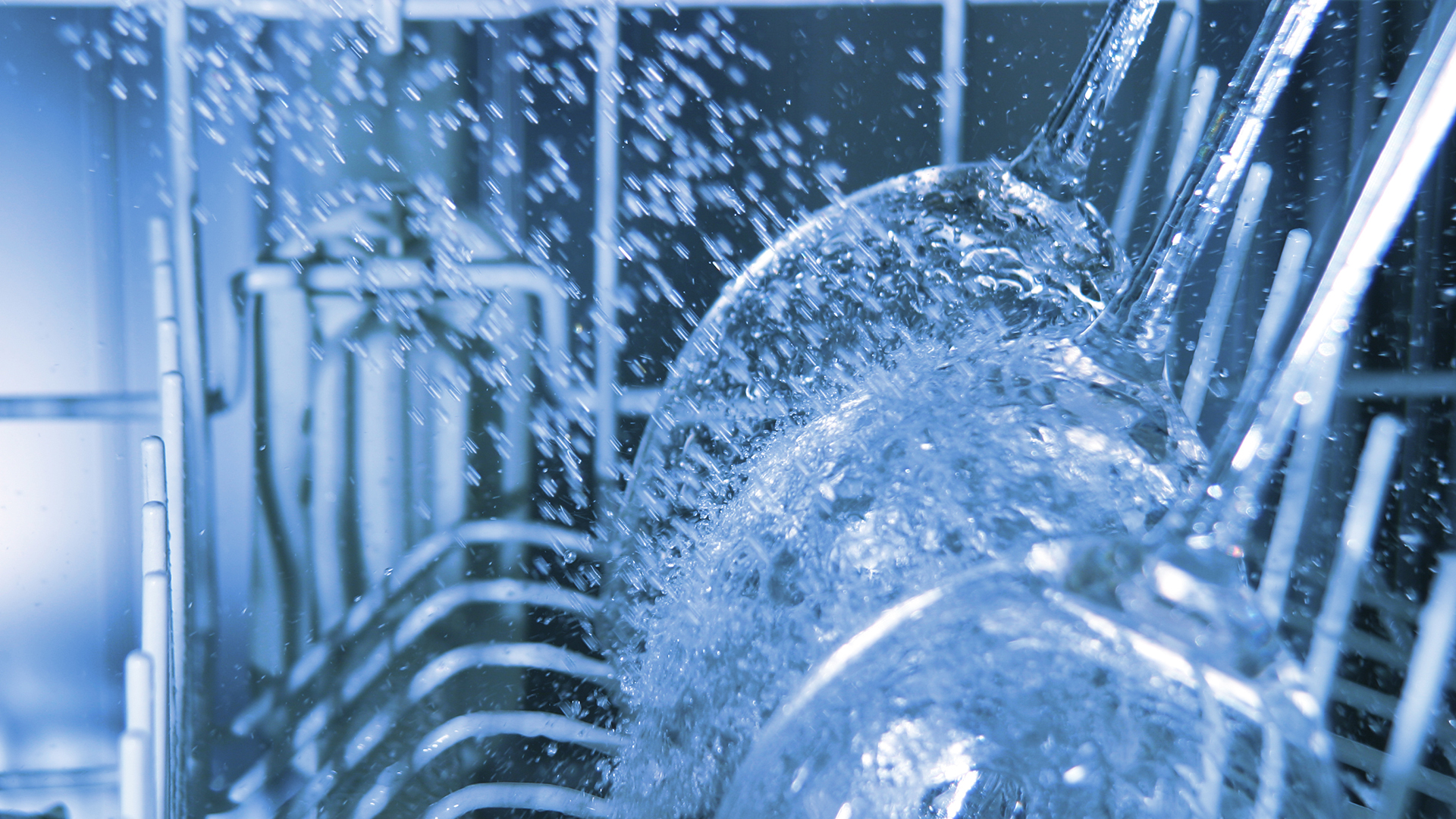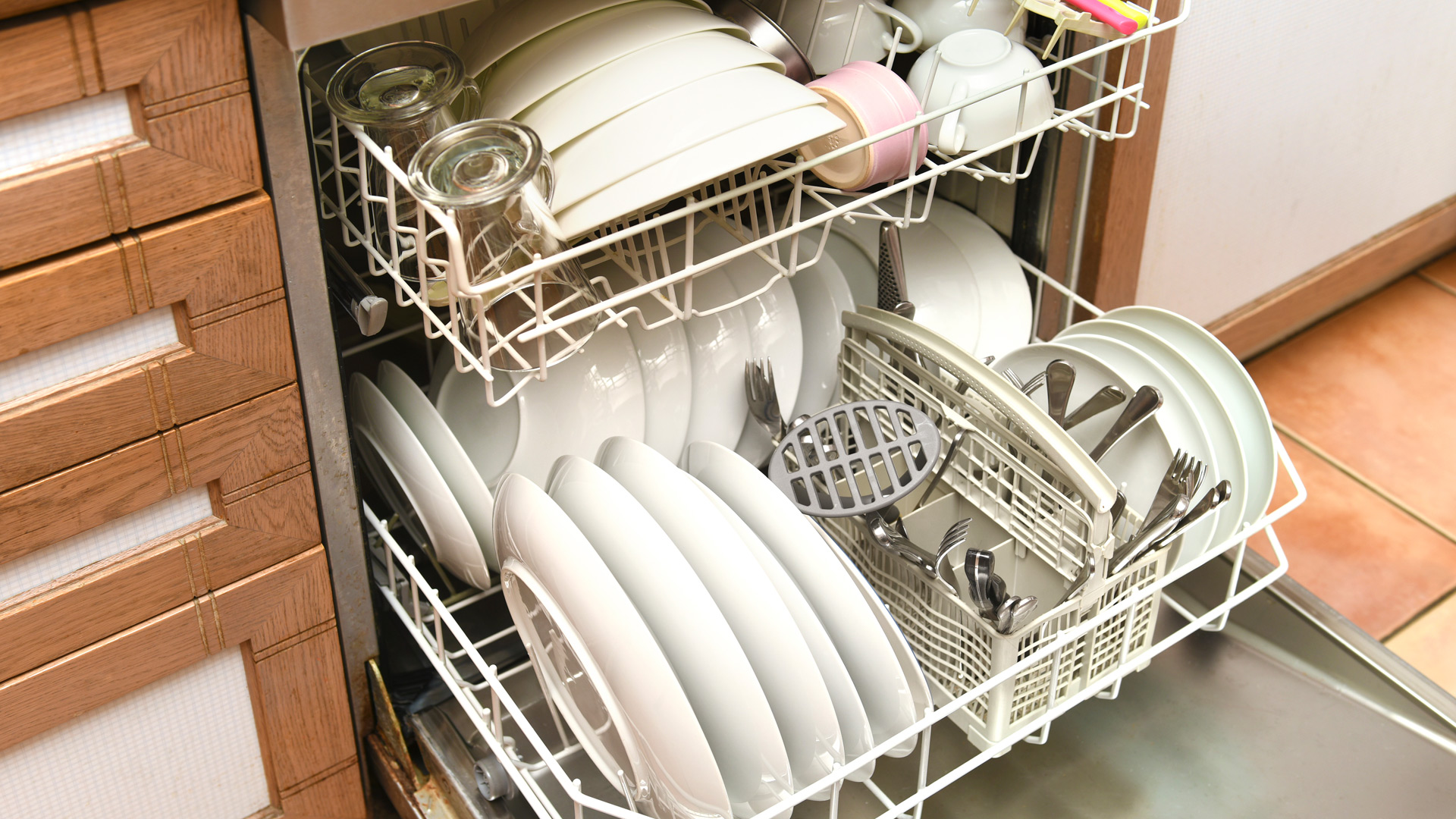Why is my dishwasher not cleaning properly? This could be the reason
Is your dishwasher not cleaning properly? According to the experts there could be a range of reasons why.

When your dishwasher is not cleaning correctly, it can be a real pain. The best dishwashers make cleaning stacks of dirty dishes easy, simple, and fuss-free. Meanwhile, the best countertop dishwashers can make light work of food-ridden kitchenware and be great space-saving appliances.
But when your dishwasher fails to live up to its squeaky-clean expectations, it can leave your dishes looking more dull than dazzling. As Lindsay Jones, Maytag’s New Product Brand Manager, tells us: “Dishwashers can significantly cut down on clean-up time, especially when compared to washing everything by hand. But when dishes come out less than clean, the most basic dishwasher troubleshooting moves are often the most helpful.”
So, if your dishwasher needs to be appropriately cleaned, stick around. We’ve identified several reasons why your appliance might not perform at its best. Plus, some top tips on how to prolong your dishwasher’s lifespan. To find out all this and more, keep scrolling…
Dishwasher not cleaning properly? Try these tips
1. You’re overloading your machine
One of the main reasons why your dishwasher isn’t cleaning properly? It’s up to – or over – its capacity. Many of the dishwashers come with three racks: one for your plates and larger items of your kitchenware, one for your glasses, and a third for all your cutlery.
A good rule of thumb to keep in mind is that a dishwasher with a 14-place setting should be able to handle 14 plates, cutlery, and glasses only. Double check your dishwasher’s manual to find out the number of place settings and make sure you only load your dishwasher up to this capacity. Double-check your dishwasher’s manual to find out the number of place settings, and make sure you only load your dishwasher up to this capacity.
2. The filter is clogged
Sign up to receive the latest news, reviews, buying guides and deals direct to your inbox
Your dishwasher’s filter keeps uneaten pieces of food and leftover residue from circulating throughout the machine. An indication that your filter is clogged is a drop in your dishwasher’s cleaning performance. You might also be able to see and smell grime on your dishes.
Lindsay says, “Depending on how frequently you’re using your dishwasher, you should clean your filter anywhere from once a year to once a week.
“Removing, cleaning, and reinstalling your dishwasher filter is easy and takes only a few minutes. How often you should clean your filter depends on the number of loads you run per week and whether you rinse or scrape your dishes before loading.” Learning how to clean a dishwasher filter will keep your machine in good condition.

3. Your soap dispenser is clogged
When the detergent dispenser is clogged, it will stop your dirty dishes from being cleaned with soap. This can happen when you’re using too much detergent or if remnants of a tablet have dried and become lodged.
So, how do you fix this problem? “When it comes to your dishwasher, less is more,” Lindsay tells us. “Start with one tablespoon of detergent or one detergent tablet or pack. If your dishes still come out dirty, try increasing the amount of detergent (if using liquid or powder) or switch up the brand.”
4. The arm spray is clogged
Like any other aspect of your dishwasher, your arm spray is essential to the performance of your dishwasher’s cleaning power. Just as its name suggests, it’s the feature of the dishwasher that sprays out water onto your used dishes.
However, as Lindsay explains, “Over time, minerals can build up in your water and cause issues for your dishwasher.
“Maytag recommends using ‘soft water’ or using a descaler if you have ‘hard water’. If this build-up occurs, descaling agents such as afresh cleaning tablets power away limescale and mineral build-up from your dishwasher.”
5. The water temperature is low
The best temperature for your dishwasher to rid dirt and grime from your plates is a temperature between 120F and 150F.
If you notice your cleaning tablet isn’t dissolving, it may be because the water temperature isn’t hot enough to dissolve it.
Lindsay adds: “It’s important to make sure the hot water supply to your dishwasher runs “hot” (120℉ target temp). If the water delivered to the dishwasher is cold, the unit will run longer to reach and maintain the optimal temperature.”
How to prolong your dishwasher's lifespan

Generally speaking, many dishwashers have a lifespan of between five to 10 years. Lindsay has shared some tips to help you get the most out of your dishwasher.
1. Show your dishwasher some love
“Your dishwasher is a labor-saving friend in your home, but once a month or so, it needs some love,” Lindsay says.
“Over time, soap scum, undissolved detergent, food debris, and grease can build up in your dishwasher, especially in its trap and drain, but also on the walls, seals, arms, and basin. This residue and grime can create a breeding ground for germs and can also get cycled back around your dishes when you run your machine.”
Lindsay suggests using a monthly dishwasher cleaner for the best results. She adds, “Set a reminder to make it part of your once-a-month cleaning routine.”
2. Always use rinse aid
Rinse aid is your dishwasher’s friend. That’s because it helps to prevent water spots from forming on your kitchenware and glasses. It also helps the dishes dry faster.
As Lindsay explains, “Many all-in-one detergent packs contain small amounts of rinse aid, but regular liquid rinse aid should still be used.”
3. Load your dishwasher correctly
Lindsay says, “Load dishes so they’re slanted and not touching and avoid nesting. Check the detergent packaging to make sure you’re using the right amount. Dirty surfaces should face the center. Put plastic in the top rack, farther away from the heat source. Make sure spray arms aren’t blocked by tall items below and are able to spin freely. Also, check that nothing will block the detergent dispenser.”
Lindsay also recommends unloading the bottom rack first and leaving plastic items for last so any leftover water won't drip on your dry bottom rack dishes.
Becks is a freelance lifestyle writer who has worked extensively for Top Ten Reviews during the past year. She started her career in print journalism at a local newspaper and has since then worked across digital and social media for food titles and home interior magazines. When she’s not writing, she’s reading and when she’s not reading, she’s writing.
